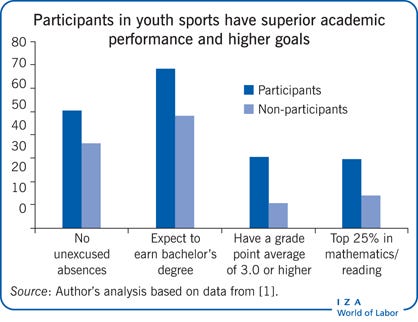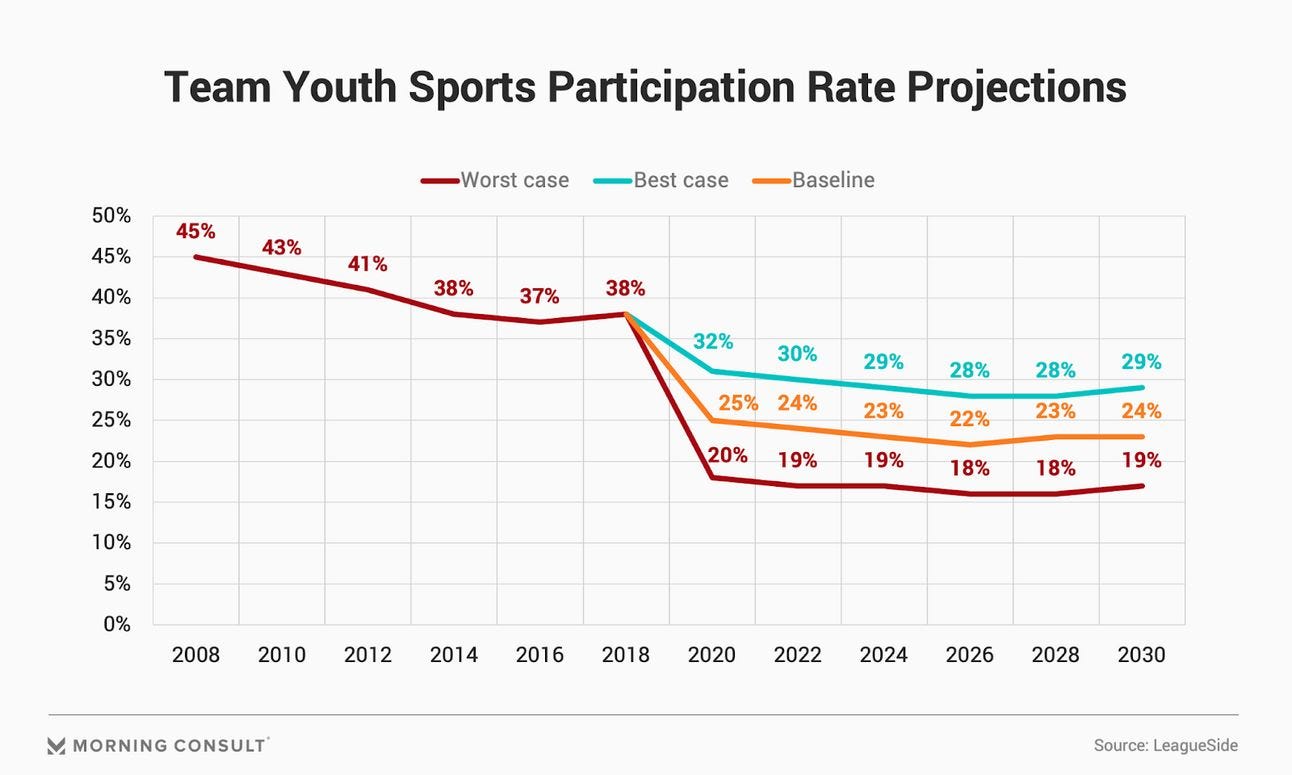Beyond the Court: The Long-Term Impacts of Youth Sports Participation
Sports are a crucial part of kids’ development. The social, physical, and mental benefits from being involved in organized sports can drastically change the outcome of a child’s life.
Many kids dream of growing up to become professional athletes, but the reality is that most will not even make a college team let alone go pro. The chances of becoming a professional athlete are very slim across all major sports, for example high school to pro basketball the odds are 0.03%, for football it is 0.08%. In the past two weeks we have been inundated with Olympic stories coupled with ads highlighting the journey of these athletes to this pinnacle of their careers. This has drawn my attention and many to the importance and impact of youth sports. Ultimately, regardless of what becomes of an athletic career for a child, sports are valuable for much more than a gold medal, career, or scholarship.
Sports play a crucial role in the development of children by, not only contributing to their physical health through fitness and coordination, but also foster important life skills such as teamwork, discipline, and resilience. Engaging in sports can enhance children's social skills, helping them build relationships and communication abilities. Additionally, participation in sports is linked to better mental health, as it can reduce anxiety and depression, boost self-esteem, and provide a sense of achievement and belonging. Thus, sports are a multifaceted tool for holistic child development.
Studies have shown participation in sports as children provides many mental and emotional benefits such as, lower rates of anxiety and depression, reduced stress levels, higher self-esteem and confidence, decreased risk of suicidal thoughts and behaviors, improved cognitive performance, enhanced creativity, greater enjoyment of physical activity, improved psychological and emotional well-being for individuals with disabilities, and overall increased life satisfaction. Sports require communication and teamwork, enhancing social interaction skills which, in a world behind screens is increasingly important. Youth sports is also shown to combat loneliness by offering a sense of community, camaraderie, and social interaction.
The physical health benefits are obvious but not to be overlooked given the increase rates of childhood obesity. In 2022, 37 million children under the age of 5 were overweight and the overall obesity rate for children between the ages of 5 and 19 has risen from just 8% in 1990 to 20% in 2022. Participation in youth sports encourages kids to stay active and fit and decreases their risk of obesity and other related diseases, such as diabetes. Engaging in sports helps in developing stronger bones and muscles during the crucial years of physical growth. It also improves cardiovascular and respiratory health, which are vital for long-term wellness. Children who participate in sports are also more likely to remain active as adults, which contributes to a healthier lifestyle overall. It is estimated that raising physical activity levels to 63% among youth could save $23.8B in medical costs and an additional $32.8B gained through increased worker productivity.
Beyond the mental and physical impacts of youth sports, physically active children have a higher chance of achieving success as an adult. One study suggested that participating in organized sports as a kid leads to the development of “grit”. Sports instill discipline, time management, and the importance of teamwork, which are valuable life skills. Playing sports helps develop new skills like the ability to overcome challenges and bounce back from failure. Perseverance and resilience are important skills for success in career, relationships, and other life experiences.
Participation in sports is shown to improve educational and career success as well as an improved economic and community impact. High school athletes are more likely to attend and graduate from a four-year college. Employers often prefer hiring former athletes due to their perceived skills and traits, such as teamwork and leadership, which are crucial in many job roles. Research indicates that individuals who participated in high school sports earn higher wages at age 30 compared to those who did not participate in sports. It is also shown to be a high correlation between faster career advancement and youth sports participation. Studies have also shown that former athletes are more likely to engage in volunteer work and charitable activities later in life.
With the rise of social media and gaming, kids are starting to drop out of youth sports early and at higher rates than in the past. From 2008 to 2018, participation in organized sports among children dropped from 45% to 38%. Participation in core team sports for youth ages 6-17 declined by 6% between 2019 and 2022, translating to 1.2 million fewer participants. The increasing cost of participation, including club fees, equipment, and travel, places a significant financial burden on families, disproportionately affecting lower-income households. The focus on elite performance, scholarship hopes, and professional team dreams are also leading to intense training schedules and the pressure to perform at the highest levels which is increasing burnout amongst young athletes, causing them to withdraw from sports altogether. The shift towards treating youth sports with high seriousness and the emphasis on winning over enjoyment contribute to decreased interest and participation.
Despite the issues with pushing kids too hard early in their athletic careers and the unlikelihood that one will grow up to become a professional athlete, it is important that kids continue to pursue sports because of the many other long-term benefits to their health and development. Avoiding specializing in a single sport at a young age to reduce burnout and injuries, as well as ensuring adequate training and rest periods is essential for a healthy youth sports experience. As a society, emphasizing the importance of youth sports is essential to the success of future generations.









💯💯💯💯